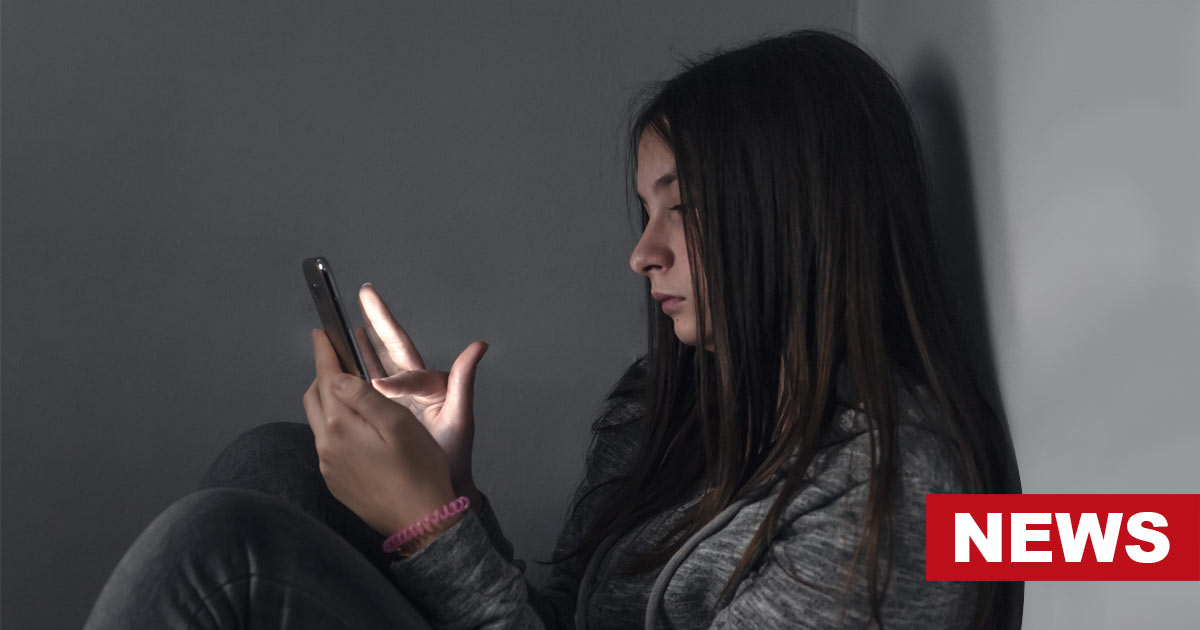- Teen social jetlag is a phenomenon arising from misaligned sleep patterns due to late-night screen engagement in teenagers.
- It has been linked to heightened emotional distress and risks of mental health disorders among adolescents.
Adolescents grappling with emotional challenges might unknowingly be dealing with what experts term “social jetlag,” a phenomenon stemming from the misalignment between the body’s inherent sleep patterns (known as chronotype) and the late-night engagement in social activities, including interactions on social media.
This growing concern in the realm of health has been identified as being primarily triggered by the excessive use of screens during nighttime hours, contributing to the escalation of psychological problems among teenagers.
A recent study published in the Journal of Affective Disorders has unveiled a strong correlation between pre-sleep screen usage and later chronotypes, subsequently resulting in heightened teen social jetlag, which in turn significantly amplifies emotional distress.
To gather insights into this intriguing relationship surrounding social jetlag in teenagers, researchers conducted comprehensive surveys encompassing over 4,000 Chinese high school students.
The participants were tasked with divulging their screen engagement before bedtime, their individual chronotypes, which mirror their internal sleep rhythms, and any prevailing emotional turmoil they might be undergoing.
The analysis of the collected data divulged a distinct pattern – adolescents who indulged in screen activities before retiring for the night exhibited a tendency towards later chronotypes, thus manifesting elevated instances of social jet lag.
This augmented form of social jet lag, characterized by a disruption in natural sleep patterns, thrusts young individuals into a higher susceptibility bracket for emotional and psychological distress. The study further illuminated how social jetlag impacted mental health in teenagers.
Adolescents suffering from this condition are characterized by later chronotypes and face difficulties in acclimatizing to early social commitments, such as early school commencement times. This dissonance between their internal clocks and external schedules compounded teen social jetlag, further exacerbating the underlying psychological challenges.
These findings underscore the criticality of nurturing healthy screen practices among teenagers and fostering an awareness of their intrinsic sleep rhythms to fortify their mental well-being. The study’s authors underscored the necessity of cultivating prudent media usage habits and implementing interventions tailored towards aligning with their circadian rhythms to champion emotional health within the adolescent demographic.
However, the study on teen social jetlag acknowledges certain limitations, particularly the reliance on self-reported data furnished by the participants, which could potentially be influenced by reporting biases and recollection errors.
Numerous health issues have been associated with irregular sleep patterns, particularly prevalent among individuals categorized as “night owls,” whose inherent sleep tendencies incline them towards staying awake late into the night and sleeping in the mornings.
Recent research has spotlighted one of the reasons behind the compromised health of night owls – they tend to indulge in more smoking and alcohol consumption than their early-rising counterparts.
Previous research on social jetlag in teenagers has also illuminated the disruptive impact of the blue light emitted by electronic screens on circadian rhythms, leading to difficulties in falling asleep and giving rise to an array of health concerns.
This phenomenon is accentuated when the screen content comprises distressing news or anxiety-triggering posts on social media, colloquially referred to as “doom scrolling.”


